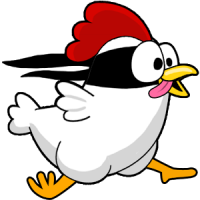//===== Athena Doc ============================================ //= eAthena Source Documentation //===== Description =========================================== //= A reference manual for the function used on eAthena //= source files. //===== Version =============================================== //= 1.2 //===== By ==================================================== //= TecnoCronus //============================================================= //= 1.0 * First release, it should have much things to add //= - yet. [TecnoCronus] //= 1.1 * Fixed Spelling Mistakes //= - Added Additional Information for Checking //= - Added Array Type to BUILDIN_DEF //= - Added Additional Information to BUILDIN_DEF [Jonne] //= 1.2 * Changed, just an little the doc style [TecnoCronus] //============================================================= This document is a reference for the main function used in eAthena source files, it will not teach you C language, it's not my intention, this doc will teach and show the arguments needs to be used in some cases and how to pass them. it will also give some goods tips for you. NOTES ----- Since v1.3 the style is changed an little, now the codes are inside the boxs, to make it more viewfull, and the titles too addes an "comment" style. /**************************\ * Pointers and Structures* \**************************/ The functions usualy works with pointer ands structures, in the most of cases you will pass some pointer, but to work, it will need to include the header files that this structure is declared, as you should know the name of pointer don't have an default model. here are some structures that are commonly used: structure Header File map_session_data pc.h map_data map.h spawn_data map.h flooritem_data map.h pet_data pet.h homun_data homunculus.h item_data itemdb.h almost all structures are declared on header files. Sometimes you will need acess an struct that is inside other, to do it follow the example: // First Step: make an pointer to the main structure: struct map_session_data *sd; // Inside map_session_data we have the structure mmo_charstatus // that contain char_id, zeny, account_id and other things. // we need to change the zeny of the player attached, remeber // the link to mmo_charstatus is "status" so we do it: sd->status.zeny += 500; // this will increase the zeny of the RID Attached by 10. All the links that are inside an structure can be found on the header file that declares the function Look the "link" declared on map.h (map_session_data structure): struct mmo_charstatus status; Another times, you don't need to use the RID attached to check/use some thing/function you need one specific, so in the declaration of pointer you need do it: Example: +-------------------------------------------------------------------------------+ | // Lets say that you are using an NPC Script command and the | | // first value given is the id: | | | | TBL_PC* sd = map_id2sd(script_getnum(st,2)); | +-------------------------------------------------------------------------------+ Now the sd pointer will be refered to the player with the given id, other case is inside script commands (script.c) we create the functions this way: +----------------------+ | | |BUILDIN_FUNC(FUNCNAME)| |{ | |<code> | |} | +----------------------+ +--------------------------+ |BUILDIN_DEF(FUNCNAME,args)| +--------------------------+ where args means the kind of arguments: "s" - string. "" - null (no arguments). "l" - labels. "v" - variables. "r" - reference (of a variable) "i" - numbers (ints) "*" - optional parameter (unknow number of). "?" - one optional parameter Note: You can combine them. E.g. BUILDIN_DEF(getgdskilllv,"iv") You see that don't show what arguments you need pass, so it pass the rid, there's an function that change the rid to sd, called "rid2sd" example: +-----------------------------------+ | TBL_PC *sd; | | | | sd=script_rid2sd(st); | +-----------------------------------+ After you converted the rid to sd, you can use the sd pointer. /*************\ * FUNCTIONS * \*************/ To use the "function" will need, first, be sure that the file that you're using have the header file who declares the function included, the names of functions will help you to find it, for example, most of pc functions start with "pc_", so all the function that starts with "pc_" are declared in pc.h header file, so to this function work well you need check if the file that you're editing have this on this case: #include "pc.h" Note that you don't used the folder link, it means that the file that you're editing and pc.h are in the same folder, to include files that are in another folder you need include the link, let's say that you did an file in 'src/map/' folder and you want to include an file that is at 'src/common' so do it: #include "../common/filename" Follow this example to other files. The second thing that you need be sure is that you are passing the arguments needs, if they are really pointer or just variables, before you use an function read the arguments needs, the arguments are declared this way: vartype varname(arguments...); example: int pc_isGM(struct map_session_data* sd); /****************************\ * Some importants functions * \****************************/ NAME TYPE FILE DESCRIPTION clif_parse_GlobalMessage void clif.c Validates and processes Global Messages. clif_parse_WisMessage void clif.c Validates and process Whispered Messages. battle_calc_weapon_attack static struct battle.c Calculates the damage of weapon. make_new_char int char.c Create an new character. trade_traderequest void trade.c Initiates a trade request. battle_calc_gvg_damage int battle.c Calculates GVG related damage adjustments. battle_calc_base_damage static int battle.c Calculates the standard damage of a normal attack assuming it hits, battle_consume_ammo void battle.c Consumes ammo for the given skill. chat_createpcchat int chat.c Player chatroom creation. chrif_save int chrif.c Saves character data. merc_hom_alloc int homunuclus.c Create homunculus structure. mob_dead int mob.c Signals death mob (runs when an mob dies). /****************\ * Source Files * \****************/ eAthena source files are all saved in src folder, I'll make an little description of the some source files: FILE DESCRIPTION script.c Contain all NPC commands/functions and some mapflag data. it checks for syntaxs erros on those scripts. battle.c Contain battle configuration like damage calculation, damage delay, skill damage woe damage, normal damage and other things. atcommand.c Contain all GM Commands codes. clif.c One of the most importants fles, this is refered to client's effects. guild.c Contain datas about guild, it create/dele guilds and all the others things related to guild. map.c related to the map, it create/delete blocks, have information about how much people is on the map, ips and many other things. npc.c Contain data about npc, it creates npc, delete ncps, call npcs ... mob.c Contain all data about mob, structs, mob routines ... pc.c Very important too, it contain "what an player can do" like: drop an item receive an item, delete an item, contain bonus data too. quest.c Contain everything related to the quest log system. storage.c Everything about storage, saves data about items stored,move an item from cart to storage, retrieve an item from the storage... trade.c Everything about trade, trade checks, add/delete items to trade. unit.c Related to player/mob/npc actions, like: use skills, walk, follow etc. core.c like the name suggests the main file, contain the int main. mmo.h contain the mains definitions like: max storage item, max guild members max party members, ... --------------------------------------- Now The Document will be divided in parts: 1.- Basic Functions. 2.- Checking Functions. 3.- Action Commands ====================== |1.- Basic Functions.| ====================== --------------------------------------- *pc_readregistry(struct map_session_data *sd,const char *reg,int type); *pc_setregistry_str(struct map_session_data*,const char*,const char*,int); *pc_readregistry_str(struct map_session_data*,const char*,int); *pc_setregistry_str(struct map_session_data*,const char*,const char*,int); Found in pc.c file, those functions check/set an variable, it returns the value of the given variable (*reg), you will need pass the type, and sure the pointer to the struct map_session_data, in the case, sd pointer. or it will set the value. Possible types are: 3 - Char reg. 2 - Account reg. 1 - Account2 reg. the pointer *reg is an string with the name of variable that you need to check. Example: // Will show an message as in "dispbottom". +---------------------------------------------------------------------------+ | int cashpoints; | | cashpoints = pc_readregistry(sd,"#CASHPOINTS",2); | | clif_displaymessage(sd->fd, "Hey you have %d Cash Points !!!",cashpoints);| +---------------------------------------------------------------------------+ On This example, the int variable "cashpoint" will get the value of #CASHPOINT variable of the RID attached, this function have some macros: MACRO Passed arguments pc_readglobalreg(sd,reg) pc_readregistry(sd,reg,3) pc_setglobalreg(sd,reg,val) pc_setregistry(sd,reg,val,3) pc_readglobalreg_str(sd,reg) pc_readregistry_str(sd,reg,3) pc_setglobalreg_str(sd,reg,val) pc_setregistry_str(sd,reg,val,3) pc_readaccountreg(sd,reg) pc_readregistry(sd,reg,2) pc_setaccountreg(sd,reg,val) pc_setregistry(sd,reg,val,2) pc_readaccountregstr(sd,reg) pc_readregistry_str(sd,reg,2) pc_setaccountregstr(sd,reg,val) pc_setregistry_str(sd,reg,val,2) pc_readaccountreg2(sd,reg) pc_readregistry(sd,reg,1) pc_setaccountreg2(sd,reg,val) pc_setregistry(sd,reg,val,1) pc_readaccountreg2str(sd,reg) pc_readregistry_str(sd,reg,1) pc_setaccountreg2str(sd,reg,val) pc_setregistry_str(sd,reg,val,1) What those macros are for is obvious, just read the name, the "val" is the value to set, can be string or numbers, to set/check string variables use the macros that ends with "str". --------------------------------------- *pc_additem(struct map_session_data *sd,struct item *item_data,int amount); *pc_delitem(struct map_session_data *sd,int n,int amount,int type) Those functions get or adds an item on the inventory of the RID attached. Where: *item_data - pointer with the item id. amount - amount of the item. The types: 0 - will display clif effect and update weight status. 1 - will not display clif effect. 2 - will not update weight status. Example: int item_id; struct item *item_data; TBL_PC *sd; int amount = script_getnum(st,3); item_id = script_getnum(st,2); item_data = itemdb_exists(item_id); sd=script_rid2sd(st); if(!item_data) { script_pushint(st,0); } else { pc_additem(sd,&item_data,amount); script_pushint(st,1); } return 0; This example is an script command where the first argument(st,2) is the item_id and the second is the amount, it will first check if the item exists and if so you add the specific item on the inventory of the player attached (RID). --------------------------------------- *pc_search_inventory(struct map_session_data *sd,int item_id); This function will find an specfic item on the inventory of the player. Example: int id; clif_scriptmes(sd,st->oid,"Let me see if you have an Yggdrasil in your inventory ..."); id = pc_search_inventory(*,607); if (id > 0) clif_scriptmes(*,st->oid,"yes you really have !"); else clif_scriptmes(*,st->oid,"you don't have"); st->state = END; clif_scriptclose(*, st->oid); return 0; This example to the same thing of the npc code bellow: mes "Let me see if you have an Yggdrasil in your inventory ..."; if(countitem(607) > 0) mes "yes you really have!"; else mes "you don't have"; close; Where * means the pointer of map_session_data. (usually sd). --------------------------------------- pc_checkskill(struct map_session_data *sd,int skill_id); This function checks if the player have the specific skill. if the player have it returns the level of skill. Example: int skill = pc_checkskill(*,10000); if (skill > 0) clif_displaymessage(*->fd,"you have the guild aproval skill"); else clif_displaymessage(*->fd,"you don't have the guild aproval skill"); return 0; Where * means the pointer of map_session_data. (usually sd). --------------------------------------- ========================= |2.- Checking Functions.| ========================= --------------------------------------- *pc_isdead(sd); *pc_issit(sd); *pc_iscarton(sd); *pc_iscloaking(sd); *pc_isfalcon(sd); *pc_ishiding(sd); Those macros checks if the player is dead/sit/cloaking/hiding or is using cart. Example: TBL_PC* sd; // If the Player is sit it will uphold him. if(pc_issit(*)) pc_setstand(*); // If the player is dead will show an message to the main chat. if(pc_isdead == 1) clif_displaymessage(*->fd,"Oh noes you're dead"); Where * means the pointer of map_session_data. (usually sd). --------------------------------------- *map_flag_vs(m); Those function returns if in the specific map, players may hit each other. Example: // Lets say that sd, bl pointer are given in the function // and this code is inside one. if(map_flag_vs(bl->m)) *->base_status.aspd += 1; This example will increase attack speed by 1 of ther player attached if he's on map that he can hit another player. * means the pointer of map_session_data. (usually sd). --------------------------------------- *pc_is50overweight(struct map_session_data *sd); *pc_is90overweight(struct map_session_data *sd); Those function checks if the player is 50%/90% overweight. --------------------------------------- *pc_isGM(struct map_session_data* sd); This function returns the Game Master level of the player. Example: // Display on main chat the gm level. int level = pc_isGM(*); clif_displaymessage("Your gm level is:%d",level); * means the pointer of map_session_data. (usually sd). --------------------------------------- *pc_nextbaseexp(sd); *pc_nextjobexp(sd); Those macros returns the EXP necessary for the next Base/Job level up. --------------------------------------- *pc_gainexp(struct map_session_data *sd, struct block_list *src, unsigned int base_exp,unsigned int job_exp) This function gives EXP *sd = RID pointer to the map_session_data *bl = RID pointer to block_list. *X = Base XP *Y = Job XP Remember: There's no default name to the pointers !! [TecnoCronus] Remember??: If you want to find a specific check, go to the logical associated HEADER file! --------------------------------------- ===================== |3.- Action Commands| ===================== --------------------------------------- *trade_traderequest(struct map_session_data *sd, struct map_session_data *target_sd); This function initiates a trade request, to use just pass the pointer of who is requesting (RID) and the pointer to the structure map_session_data of the target. --------------------------------------- *pc_follow(struct map_session_data *sd,int target_id); *pc_stop_following (struct map_session_data *sd); This function make the player attached to the script follow/Stop follow another player, given by target_id var (account id) Example: int id; TBL_PC *sd; TBL_PC *ssd; id = 12586536; ssd=map_nick2sd(id); pc_follow(sd,ssd->status.account_id); This example make the attached player follow the player that have account id 12586536. --------------------------------------- *pc_setpos(struct map_session_data* sd, unsigned short mapindex, int x, int y, uint8 clrtype); This function change the position of an player. Where: mapindex = map to warp x = coordinate x y = coordinate y clrtype = type of respawn. clrtype = 3 (warp out animation) clrtype = 0 (no warp out animation/vanish/no animation) Example: pc_setpos(*,sd->status.save_point.map,sd->status.save_point.x,sd->status.save_point.y,3); Warps the RID to his save point. * means the pointer of map_session_data. (usually sd). --------------------------------------- *pc_dropitem(struct map_session_data *sd,int n,int amount); This function drop an item from the inventory of the player. Where: n = the item id amount = amount of the item to drop. Example: int id, find; TBL_PC *sd; id = script_getnum(st,2); sd= rid2sd(st); find = pc_search_inventory(sd,id); if(find > 0) pc_dropitem(sd,id,find); else clif_displaymessage(sd,"you don't have the item with the id %d",id); return 0; This example is an script command that find for the specific item on the player attached to the script and if he have it, will drop it on the floor. --------------------------------------- *pc_payzeny(struct map_session_data *sd,int zeny); This function get the zeny specific from the player attached. Example: int zeny = 1000; pc_payzeny(*,zeny); This example will get 1000 zenys from the player. * means the pointer of map_session_data. (usually sd). --------------------------------------- *pc_getzeny(struct map_session_data *sd,int zeny); This function give to the player the amount of zeny specific. Example: // Will give the amount of fame as the amount to give zeny. int zeny = *->status.fame; pc_getzeny(*,zeny); * is the pointer of map_session_data. (usually sd). --------------------------------------- *guild_create(struct map_session_data *sd, const char *name); This function is responsiveble for the creation of an guild, it checks the name of guild, if you're already in one, in an item is need. The only two arguments needs are the session data of the RID and the name of guild. --------------------------------------- *add_timer(unsigned int tick, TimerFunc func, int id, int data); This function adds a temporary timer to the GID Where Tick: - Time that it will be executed (In Milliseconds) - ie. gettick()+360000 - in 5 minutes func: - Linked Function (ie. battle_delay_damage_sub) id: - Game ID (ie. mob_data->block_list.id) data: - Additional Arguments ie. (int)script_state) --------------------------------------- *storage_storageopen(struct map_session_data *sd); This function, like the name suggest open the sotrage windows of the RID attached, you just need pass the session data of the RID to it work. Returns 0 if it don't failed and 1 if it fail. ---------------------------------------










